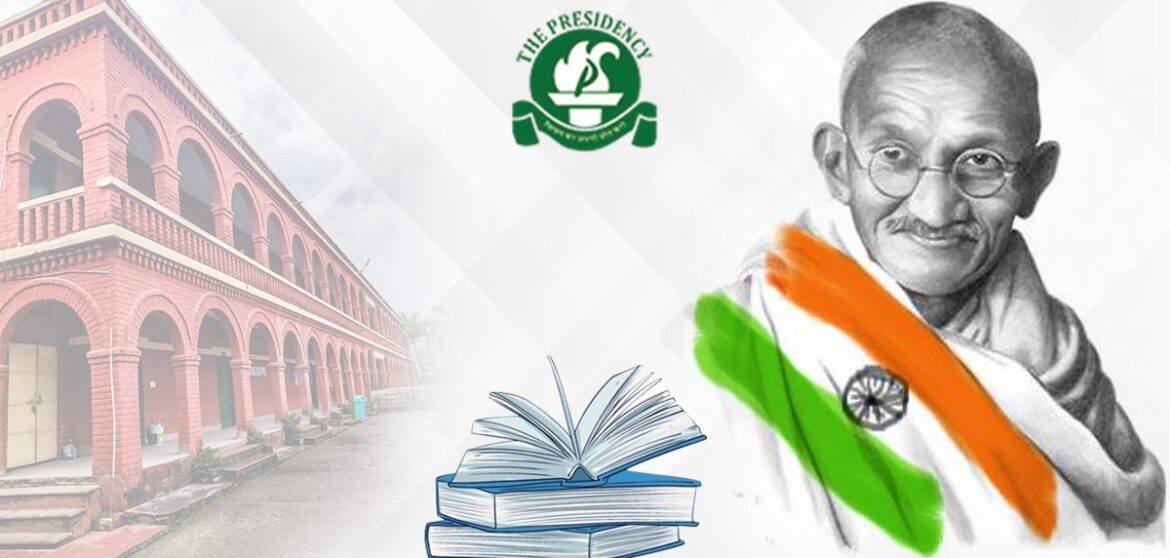PRICELESS LESSONS FROM MAHATMA GANDHI ON EDUCATION
Mohan Das Karam Chand Gandhi’s actions have garnered him several monikers and descriptions throughout the world, including the hero, social activist, fanatic, lobbyist and peacemaker. Some remember him as Mahatma—the noble soul—while others remember him as the architect of the Indian Independence Movement, a movement that liberated Indians from tyrannical British tyranny.
To the rest of the world, he was an attorney, politician and national leader. He was the inspiration for Albert Einstein, Martin Luther King Jr., Nelson Mandela, Dalai Lama, Steve Jobs, Barack Obama and many more. But to youngsters, he is just ‘Bapu,’ a father with a deep and enduring affection for his children.
Gandhi Ji adored children because he thought of them as “the Flowers of God’s Garden.” He welcomed their pure hearts, descended to their level, engaged them in conversation and under the guise of play, imparted wisdom to them.
Every year on his birthday, October 2nd, the world commemorates him as the “Father of India.” We remember him as a loving parent who was sincerely concerned about the well-being of children everywhere, not just in India.
Many people are unaware that Mahatma Gandhi was a pioneer of educational reform in Indian society. He wished to change the current educational system in order to promote basic and functional learning. Gandhi Ji thought that teaching kids essential life skills was more important than teaching them core academic knowledge.
This Gandhi Jayanti, we discuss five well-known quotes by Mahatma Gandhi that inspired us to reconsider how we should approach teaching and learning.
“Basic education links the children, whether of the cities or the villages, to all that is best and lasting in India.”
Education should be utilized to effect change in the world. The fundamental goal of education is to unite all people, regardless of their race, creed, or other characteristics and to include them in the process of progress through disseminating the truth and advancing knowledge. He thought that children are like mirrors and that we, as adults, should strive to transform reflections into windows.
“I consider writing as fine art. We kill it by imposing the alphabet on little children and making it the beginning of learning.”
Education has far deeper origins. Writing, in particular, is the skill of capturing free-flowing thoughts on paper. It is what separates people from beasts. It is not a craft that can be taught mechanically. It is, on the contrary, a scientific learning process. Every word a youngster writes needs to include a “why” and a “wherefore” explanation or else the entire purpose of schooling is defeated.
“Experience gained in two schools under my control has taught me that punishment does not purify, if anything, it hardens children.”
Punishing a youngster prevents him from learning. The goal of disciplining a child is to teach rather than to punish. Teaching a youngster will help him identify and address issues, but punishing him will make him suffer as a result of those difficulties. It will give rise to vengeance. To create ‘problem solvers,’ we must change our emphasis away from sanctions and toward solutions.
“By education, I mean an all-round drawing of the best in child and man in body, mind and spirit.”
The goal of education is to facilitate learning. Learning is never cumulative; rather, it is an ongoing process that attempts to help children become the greatest versions of themselves by assisting them in identifying and honing their abilities as well as in developing their skills and their own unique minds. Learning encompasses all aspects of development—physical, mental, emotional and ethical. We cannot achieve the basic goal of education by working in isolation on various topics.
“The greatest lessons in life, if we would but stoop and humble ourselves, we would learn not from the grown-up learned men, but from the so-called ignorant children.”
Children, since they are innocent, modest and honest, may teach us essential lessons in ethics and moral principles that we as adults often fail to appreciate. They teach us three fundamental life principles: true happiness, curiosity and fighting for a cause. They also teach us that it’s never too late to start learning. All we need to figure out is how to learn.
Mahatma Gandhi’s concept of being the change we want to see applies to all contributors to a child’s development. So, with this Gandhi Jayanti let us start working together to create a brighter future for our children and grandchildren. And, together, we can use education’s mighty force to subtly change the world.


